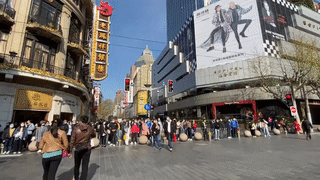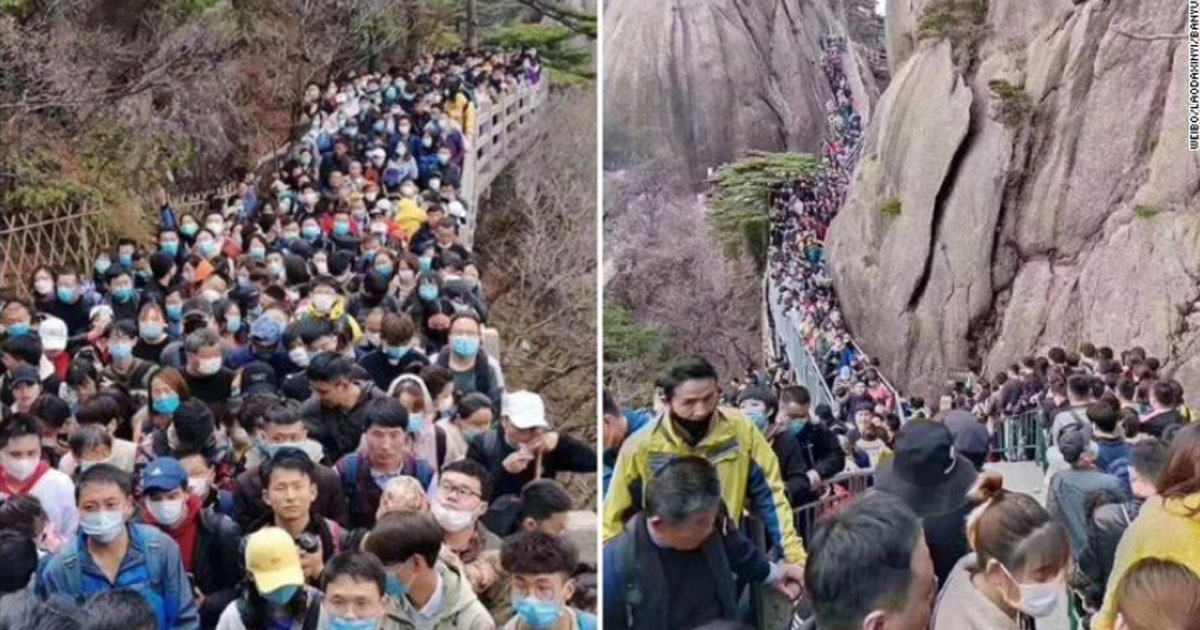Huge crowds in China returned to popular tourist attractions and major cities over the country's holiday weekend, sparking fears of a resurgence of the coronavirus that causes Covid-19.
The masses have began to go out again just as news about the Covid-19 outbreak has been reported to be under control on the mainland.
This was despite warnings from health authorities that the coronavirus pandemic remains far from over.
Tourist attractions packed
Thousands of people were congregated together shoulder-to-shoulder, many wearing face masks, images from the Huangshan mountain park in Anhui province on Saturday, April 4 showed (picture above).
They were quick to descend upon the great outdoors after months of travel restrictions and strict lockdown measures.
Authorities step in
The surge in human traffic saw the authorities take the unusual step of issuing a notice declaring that the park had reached its 20,000 person daily capacity, and would not be accepting any more visitors, state media Global Times reported.
Such was the rush to get into the popular tourist spot at 7.48am.
The famous Bund waterfront in Shanghai was also packed with tourists, after weeks of being near deserted.
Many of the city's restaurants reopened and were doing well, with several requiring reservations to enter.
Days earlier they were shut.
Locals in capital Beijing similarly flocked to the city's parks and open spaces.

Activities resume 3 months after outbreak
The abrupt return to business-as-usual comes more than three months after the coronavirus was first detected in the Chinese city of Wuhan.
The outbreak brought China to a near standstill in a bid to contain transmissions.
Thousands of new cases were recorded in China every day during the peak of the outbreak.
The rate of infection has slowed in recent weeks.
On Monday, April 6, China reported just 39 new cases, all were imported except for one.
To date, China has recorded 82,641 cases and 3,335 deaths.
The outbreak has since spread around the world infecting more than a million people.
Warnings sounded
Chinese health experts have urged the public to continue to practice caution.
Zeng Guang, chief epidemiologist with the Chinese Center for Disease Control and Prevention, told the Health Times on April 2 that China had not seen the end of the epidemic.
"China is not near the end, but has entered a new stage. With the global epidemic raging, China has not reached the end," he said.
The government has tentatively begun efforts to restart the country's manufacturing and service industries.
The collapse in activity has affected every sector of the country's economy.
But the government has also been wary of opening up too quickly and sparking a second wave of infections in the country.
Do not gather yet
People's Daily, the official newspaper of the ruling Communist Party, issued a stern reprimand on social media warning tourists: "Do not gather!"
This admonishment came after pictures of the crowds at Huangshan emerged on social media.
"If there are asymptomatic carriers present during large-scale gatherings, the consequences would be severe," a People's Daily article also said.
Huangshan has since announced it will stop receiving tourists, according to the paper.
Concerns around whether China is relaxing its coronavirus restrictions too soon have led Hong Kong experts and authorities to warn of the possibility of a "third wave" of infections in the city.
Hong Kong epidemiologist Yuen Kwok-yung told reporters on April 5 that there could be a "new wave" of cases in mainland China, off the back of imported infections from Europe and the US.
Top photo via Weibo
Content that keeps Mothership.sg going
📅💻
A list of online events to brighten up your stay home situation.
🌳🔥
What has Singapore done for climate change?
✈📷
Know someone who owns a drone?
🖥️🎮
Here's how you can pwn noobs to win money.
🏠💼
We hate online meetings as much as you do.
If you like what you read, follow us on Facebook, Instagram, Twitter and Telegram to get the latest updates.
